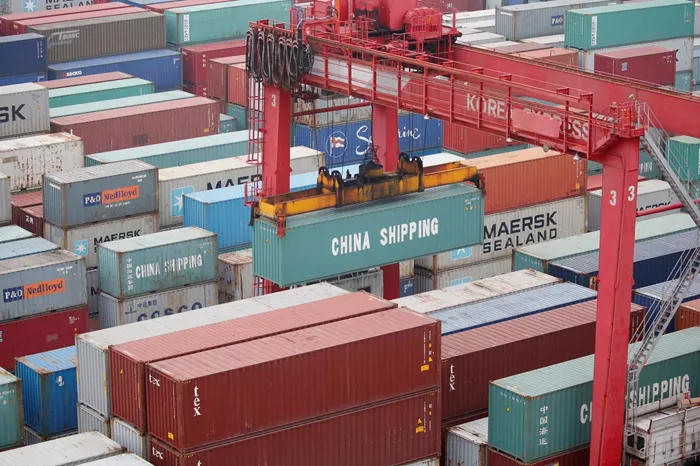China has swiftly retaliated against the United States’ newly imposed tariffs, reigniting tensions in the ongoing trade dispute between the world’s two largest economies. The announcement of the new tariffs by China comes in response to U.S. duties, which went into effect at 12:01 a.m. ET on Tuesday, applying a 10% levy on a range of Chinese imports.
The U.S. administration had imposed these additional tariffs after President Donald Trump repeatedly criticized Beijing for not doing enough to curb the flow of illicit drugs, particularly fentanyl, into the United States.
In response, China’s Ministry of Finance revealed a new set of tariffs targeting various U.S. products. These include a 15% tariff on U.S. coal and liquefied natural gas (LNG), as well as a 10% tariff on crude oil, agricultural machinery, and some automobile imports. The tariffs are set to take effect on February 10.
In a further escalation, China announced an anti-monopoly investigation into Alphabet Inc.’s Google. The country also added U.S. companies PVH Corp, the parent company of brands such as Calvin Klein, and biotechnology firm Illumina to its “unreliable entities list.” Additionally, China’s Commerce Ministry and Customs Administration said they would impose export controls on critical materials, including tungsten, tellurium, and molybdenum, to protect national security interests. These rare earths are essential for the global clean energy transition, and China controls a significant portion of the world’s supply.
The trade dispute follows a period of relative calm for U.S.-China relations, with a tentative breakthrough on tariffs for neighboring countries. On Monday, President Trump suspended his threat of imposing 25% tariffs on Mexico and Canada, agreeing to a 30-day delay in exchange for concessions on border enforcement and crime reduction efforts with the two countries.
Amid rising hopes of de-escalation in the China trade conflict, a scheduled meeting between Trump and Chinese President Xi Jinping has been brought forward. Initially expected later in the week, the talks are now expected to take place within the next 24 hours.
The trade war between the U.S. and China dates back to 2018, when Trump initiated a two-year dispute over China’s significant trade surplus with the U.S. This led to a series of tit-for-tat tariffs on hundreds of billions of dollars’ worth of goods, disrupting global supply chains and impacting the world economy.
Economic analysts are cautious about the future of the trade war. Oxford Economics, in a recent report, warned that further tariffs are likely, revising its growth forecast for China downward. As the situation develops, the potential for additional measures, including further tariffs, remains high.
Related topics:
- India Surpasses China in Gold Purchases, Buying 51% More in Three Months
- Gold Rates Skyrocket in Chennai on Diwali, 24K Gold Exceeds Rs. 81,000 Per 10 Grams
- Gold and Silver Prices Rise Across India on January 13, 2025


